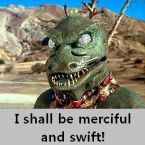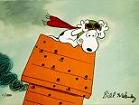wdolson
Posts: 10398
Joined: 6/28/2006
From: Near Portland, OR
Status: offline

|
quote:
ORIGINAL: Historiker
http://www.thelocal.de/gallery/culture/1509/
The German language should probably be mentioned. I think the vocabulary was five or six times as large?
There is a lot of debate about how large the vocabulary is for different languages. One source I saw once put English around 500,000 words, German 2nd largest around 300,000 words, Russian 3rd around 160,000 words. However someone wants to parse the vocabularies, English and German probably are the two largest vocabularies.
English is so large because it started out as a creole. I believe it still has the grammar of a creole. The British isles were a cross roads of different peoples who spoke different languages. The people who were there the longest spoke versions of languages from Central and North Central Europe (mostly Germanic), then the Romans came and introduced Latin. The place "went native" for a while after the Romans left, and then they were conquered by the Normans who were Vikings who spoke French. The dichotomy between the Anglo-Saxon peasants and their French lords can be seen in the different words for animals and the meat that comes from them. A cow is the animal, but the meat is beef. Or a deer is the animal and venison is the meat.
Add to that a tradition of having very flexible rules for inventing new words and the language grows like a weed.
That said, every language has words that don't translate well into other languages. Inuit (the language of the North American Eskimos) has more words for snow than any language in the world.
Farsi for some reason has more words for love than any language in the world. I suspect ancient Persian poets would challenge one another to come up with new words to convey subtle differences in meaning and hence all the words in the language today.
I also once saw a chart of foreign languages ranked by difficulty of learning by a native English speaker. If I recall correctly, Norwegian was the easiest, German and Spanish were both up near the top. The Latin and Germanic languages were all near the top. The hardest to learn was Farsi, followed by Arabic, and 3rd hardest was Chinese.
Bill
_____________________________
WitP AE - Test team lead, programmer  |
 Printable Version
Printable Version





























 New Messages
New Messages No New Messages
No New Messages Hot Topic w/ New Messages
Hot Topic w/ New Messages Hot Topic w/o New Messages
Hot Topic w/o New Messages Locked w/ New Messages
Locked w/ New Messages Locked w/o New Messages
Locked w/o New Messages Post New Thread
Post New Thread